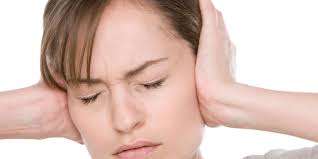Tinnitus is an auditory perception problem. Although it is common and not a disorder in itself, it is a symptom of an underlying condition. This underlying symptom could be circulatory system disorder, ear injury, or age-related hearing loss.

Symptoms
The symptoms of tinnitus are hearing irksome sounds that are not externally present. These irksome sounds can be:
- Buzzing
- Ringing
- Clicking
- Hissing
- Roaring
These sounds can vary from low hum to high-pitched squeal. You may hear it in one or both of your ears. In several cases, the sound can be irritating enough to interfere in day-to-day life as a result of which a person is unable to concentrate properly. Tinnitus may either be present all the time, or it can come and go as well.
Types
There are two types of tinnitus.
Subjective Tinnitus: Subjective tinnitus is when only the person affected by it is able to hear the sound. It can be the result of problem in inner, middle or outer ear. It can also be caused due to any problem that affects one’s auditory nerves responsible for sending nerve signals to the brain to interpret the message. Subjective tinnitus is the most common type of tinnitus.
Objective Tinnitus: In objective tinnitus, people other than the person affected by the problem can hear it too. In this case, the doctor conducting the examination can hear as well. This is a rare type of tinnitus. It can be caused because of muscle contractions, a middle ear bone condition or blood vessel problem.
Prevention
Although there is no fixed cause for tinnitus, some preventive measures can be taken to reduce the chances. These include:
Using Ear Protection – Exposing oneself to loud noise over the years can damage the nerves present in the ears, resulting in loss of hearing loss. If someone is a musician or works in an environment where loud noises are present, they should ideally use ear protection to lessen the noise going into the ears.
Turning Down the Volume – Listening to music on a very high volume can damage the ear nerves. It is suggested to keep the volume low.
Looking after Cardiovascular Health – Doing exercise regularly, eating properly and healthily, etc., can help keep the blood vessels healthy. This plays a great part in preventing tinnitus because of the blood vessel-related disorders.
Treatment
Treatment for tinnitus is available in hospitals. If you or someone you can is affected by it, it is advised to visit an ENT specialist as soon as possible and get it checked.


